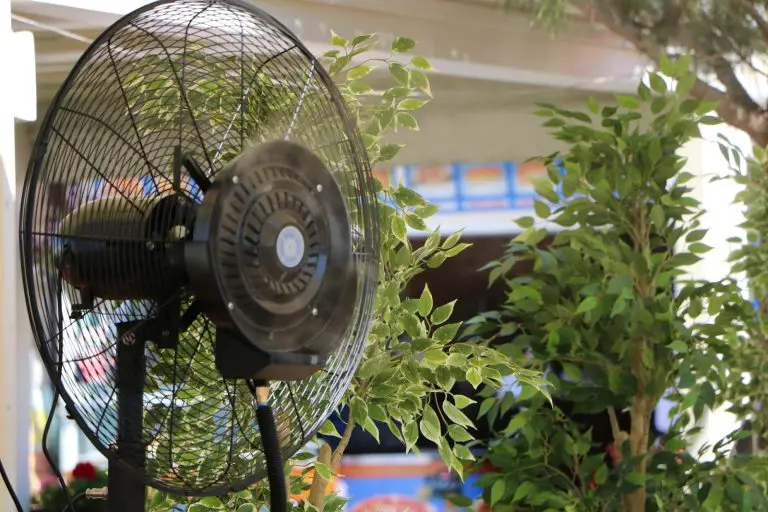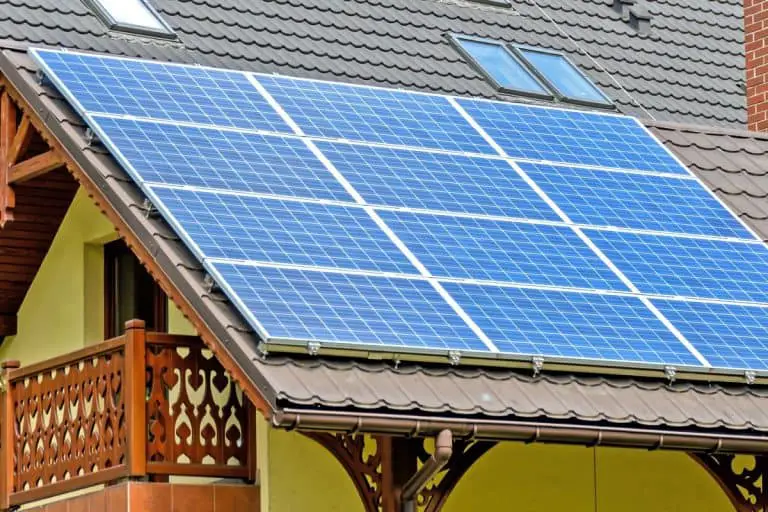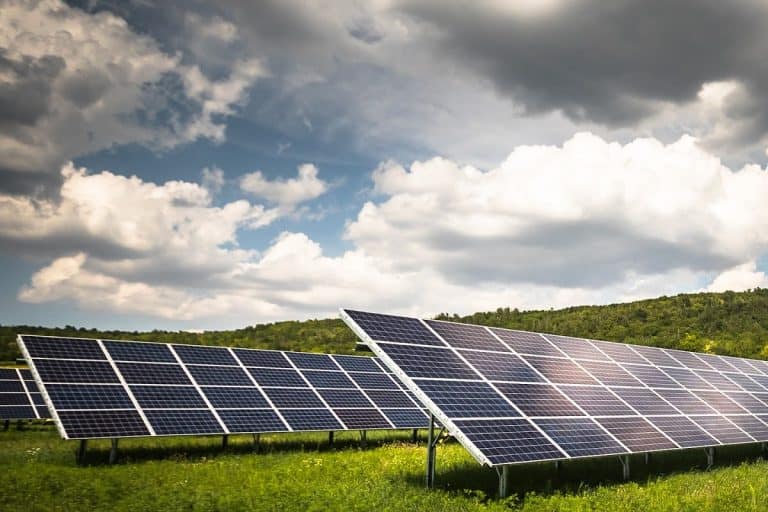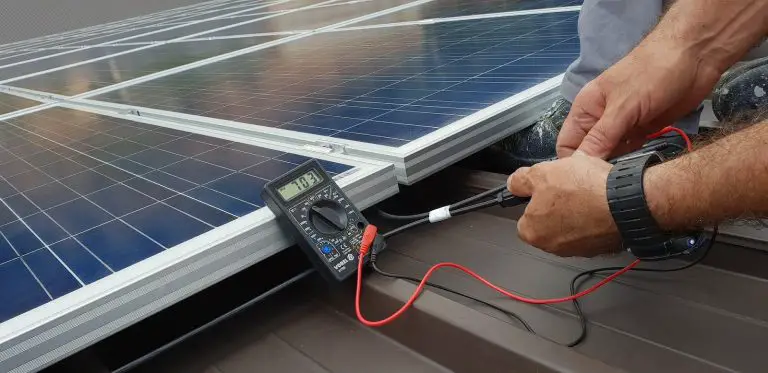What Is The Cost Of A Solar Generator? (Plus 2 Popular Generators)
These generators range from $66.99 to $5,199.99.The cost of solar generators ranges from relatively cheap to very expensive depending on the various features. Solar generators are a long-term home investment that proves useful during power outages or camping, and that can save money along the way.
In a bid to minimize the amount of carbon emitted to the atmosphere, more products are being developed to replace traditional models powered by gasoline. It has led to the introduction of solar-powered generators. These products are environmentally friendly and require minimal maintenance to last a long time.
Solar generators require a substantial initial investment. However, given that they need minimal running costs, they make up for their costly nature. This article looks at how much solar generators cost, the types of solar-powered generators, and much more.
What Is The Cost Of A Solar Generator?
The cost of a solar generator ranges from as low as $66.99 to as high as $5,199.99. The price depends on a couple of factors that should be considered before purchasing the solar generator. These include battery capacity, power output, inverter rating, number of outlets, and expandability.
Batteries with a large storage capacity can store more energy than those with small storage capacities. In turn, such batteries can stay for long periods without the need to be recharged. The power output produced by a generator is another critical factor to consider. It will be influenced by the power required to keep appliances on.
Expandability Explained
Expandability refers to the ability to add more solar panels to the generator. In turn, more sunlight energy is absorbed. Solar generators use solar panels to charge. An adapter cable (solar) will be required for this process to take place.
Several outlets allow the backup generator to charge multiple appliances. It depends on the number of appliances, power tools, or devices one intends to charge. Also, having an inverter will facilitate turning solar energy into alternating current (AC) electricity.
Two Types of Solar Generators
There are several solar generators in the market, all designed to handle large to small loads. The purchasing decisions depend on the preference and the needs one wants to serve. Below are two solar generators that may be suitable for you:
Bluetti EB3A Generator (Bluetti site)
This new solar power generator was introduced into the market by BLUETTI in 2022. The portable device can be transported from place to place, making it convenient for travelers. Its fast charging capabilities and various outputs make it more attractive to potential buyers.
Other unique features of the portable solar power generator include an upgraded LiFePO4 battery that offers 2,500+ life cycles and minimal environmental impact. Also, the generator can charge a device from 0 to 80% in thirty minutes.
You can charge the solar generator in two hours using a 200W solar input, so you can confidently go off the grid without fearing high costs and losing power. The device also contains an intuitive app that provides quick access to the device and its vital metrics.
The portable generator is great for power outages and outdoor adventures and recreations. During power outages, it can keep the fridge, lights, and phones on till the light come back. It also suites outdoor use to power cameras, laptops, smartphones, and drones.
Jackery Solar Generator 2000 Pro (from Jackery site)
A popular name in the solar power generator industry is Jackery. The brand is known for producing a range of quality products. The Jackery generator 2000 pro is one of them. The generator utilizes a power station with up to six 200-watt solar panels and ranges for about $3,599.
The power station utilized is the Explorer 2000 pro. This massive power station has a 2,200-watt inverter and a 2,160-watt-hour battery. The generator is capable of running almost any device such as power tools, refrigerators, and air conditioners.
How Long Does A Solar Generator Last?
Solar panels collect solar energy, which is then stored in the batteries of the solar generator. An inverter converts this energy to AC power before releasing it into various appliances. Solar panels are known to last for 25 to 30 years. Generators run by gas power have longer lifespans of up to 40 years. However, various challenges accompany the long life span such as maintenance jobs and fuel purchases.
Solar generators do not experience such challenges. They continue to gain popularity because of their easy handling, minimizing carbon emissions, and usage of free energy. Solar generators’ general life span depends on the quality of their components (solar panels and batteries) and their various parts.
There are generators that are bought with solar panels attached, while there are those that require separate purchases of solar panels. Solar panels can last more than 25 years if you handle them carefully. Other than regular cleaning, these components don’t require any more maintenance.
The battery is the other main generator component. These batteries contain chemicals, causing them to have a limited life. Therefore, purchasing solar generators with large capacities and a longer life span is wise.
General Maintainance Practices
You can carry out general maintenance practices to ensure the solar generator maximizes its life. For example, directly plugging generators into wall outlets should be avoided. Doing so could result in power going back down utility lines, harming the machines and triggering a fire.
Read The Manuals
To properly understand the machine’s work, you should read the manuals thoroughly. Understanding the specifics of the generator is necessary before proceeding to operate it.
Keep Them Away From Water
You should also keep water from reaching the generator. While some generator models are waterproof, it does not mean you can fully submerge or expose them to water. But, they will remain safe when water is splashed on them, or they slip into water puddles by mistake. Being carefree and exposing them to large amounts of water can damage them. Hence, you should take caution all the time.
Charge It When Even When Not Used
Periodically charging the generator is also necessary. Keeping the generator in storage for a long time, without removal, can dry the battery liquid out. With the battery liquid going dry, the battery may die. Charging the generator every three to six months is, therefore, ideal.
Alt Energy Options is an Amazon Associate. As an Associate, we earn commissions from qualifying purchases. The site also maintains other affiliate relationships. Purchases made through the site links don’t increase cost to the buyer. Full affiliate statement here.
What Is The Best Solar Generator For Home Use?
According to Futurism, one of the best home generators is the EF Ecoflow Delta on Amazon. This light and compact generator is portable and can provide power for camping, work, or emergency home backups. It also contains multiple charging options. The cons of this product are that it lacks solar panels. You have to purchase it separately, making it comparatively expensive.
Charging a solar panel with 400W takes as little as four hours to as much as eight hours. The charging time is reduced to 1.6 hours when plugged into a household outlet. The one advantage gasoline generators have over the EF Ecoflow is faster charging. The latter, however, emits zero emissions, making it more suitable for the environment.
When deciding on a generator, there are safety precautions that you should look into. For instance, exhaust-emitting products may result in CO poisoning if one isn’t cautious. Christopher Haas, a licensed master electrician, said running generators in enclosed spaces should be avoided and recommended that CO detectors be placed within the house.
Can A Solar Generator Power A House?
When using solar systems for backup, you can trust electricity to be generated throughout the year and not just when grid emergencies occur. The problem is the cost of a system that can power a house during these emergencies. Residential solar power ownership tends to increase after power outages are experienced.
10 years ago, we installed a 42KW propane generator after a derecho took us out for 5 days. i now work from home in all my roles, so continuous power is essential. We just moved, and we will be installing a combination of whole house battery backup generator with power from solar, off-peak power grid charging and, as a triple redundancy, can also run on the natural gas supplied to our neighborhood.
According to Alison Silverstein-a consultant and researcher of electric system reliability- the one way to keep lights on during a power outage is to have a photovoltaic system in place, with batteries and an inverter.
It will be very costly if you need the entire house to be powered by a solar generator for several days. Not many can budget for such costs. The cost-effective thing to do, therefore, is to allow the solar generator to power the necessities during a blackout.
Are Solar Generators Worth The Money?
Solar generators are worth the money as they offer users many advantages. Not only are they versatile and lightweight, but they are a source of green energy too.
It Has Many Uses
You can use them in various circumstances. For solar generators to work, they convert solar energy to direct current and store it in lithium-ion batteries. Here, an inverter converts it to usable alternating current. The various products they can power include small appliances, devices during a camping trip, or run RV camps and appliances when living off the grid.
Some Generators Are Portable
A common and highly talked-about challenge of gas-powered generators is their bulky nature. They are hard to move around, and you can only use them where they are located. With a portable solar generator, the case is different. Its compact nature allows one to carry it around and utilize it on the go. It includes road trips, camping trips, and events that require a backup energy source.
Solar Generators Are Eco-Friendly
Eco-friendly products continue to be encouraged in a bid to protect the environment. Solar-powered generators are a great fit when replacing the traditional gas-powered generators that rely on fossil fuels. With solar-powered generators, one can be assured of reduced environmental impacts. Since they don’t use oils and chemicals, they don’t release pollutants into the air.
How Long Does It Take To Recharge A Solar Generator?
There are solar generators that you can move around and those that are set to a particular position. Solar backup generators power up homes when there is a failure with an electrical grid. Such generators require several batteries that store energy. The power is enough to power the lights, computers, televisions, and mid-sized appliances.
Solar backup generators take 48 hours or less to charge to the total capacity. Charging time tends to vary depending on the amount of sunlight and panel sizes. You can place these generators indoors or outdoors. Also, their weight makes them difficult to move around.
Generators that are large enough to power residences tend to be expensive. Portable solar generators, on the other hand, are lightweight. One can travel with them anywhere. They are great for campsites, cabins, boats, cars, and recreational vehicles. Some portable generators have a pull handle that assists with effortless transporting.
However, these generators have a drawback. Their wattage capacity may be inadequate when trying to power larger appliances. These include refrigerators, washing machines, dishwashers, and water heaters. Powering multiple devices may equally be difficult. Also, if they utilize solar panels with low wattage recharging the generator may take some time.
Can A Solar Generator Run A Refrigerator?
As mentioned earlier, solar generators are suitable during camping or power outages. Most people prefer to use these generators to power their refrigerators when access to electricity is limited. These compact generators allow food to maintain its freshness until one gets access to adequate power.
One great solar-powered generator is the Jackery Portable Power Station Explorer 1000. This generator is great for powering mini-fridges for camping or full-sized refrigerators. It is small and compact but proves a worthy investment.
This generator possesses 1000W and 1002Wh. It is ideal for powering refrigerators and additional small camping or household appliance. This generator runs for 7 hours when it’s an AC outlet, but for 14 hours when it’s 12V carports. Its weight of 22lbs allows carrying it to the next night’s adventure.
Are Solar Generators Noisy?
One other benefit of solar generators is their quiet operations. They don’t possess moving mechanical parts, making them very quiet when producing power. One can confidently purchase these generators without worrying about disturbing the environment during an overnight camping trip.
Also, there are quiet solar power stations that you can use indoors and outdoors. It makes them highly reliable during emergencies, and one doesn’t have to disturb the neighborhood with noise.
Do Solar Generators Work At Night?
While solar generators produce electric power by harnessing the sun’s energy, they work fine at all times of the day. It is because the solar generator batteries store energy allowing usage at any given time. It means with the presence or absence of sunlight.
Final Thoughts
Solar-powered generators are a positive investment that more people should consider. Taking care of the environment continues to be everybody’s responsibility, and by replacing gas-powered generators with solar-powered generators, we move closer to creating a favorable living environment.
This powering system offers numerous advantages, from minimal noise pollution, portability, and free use of energy to zero emissions. You can keep refrigerators and other home appliances powered during unexpected power outages, which solves the inconvenience of power blackouts.







